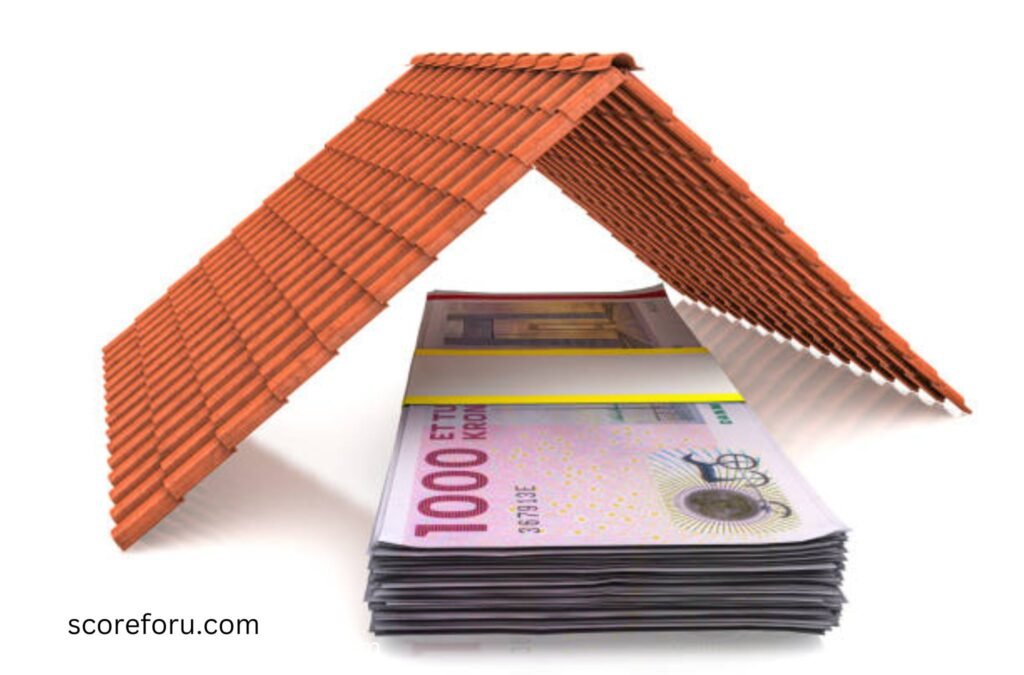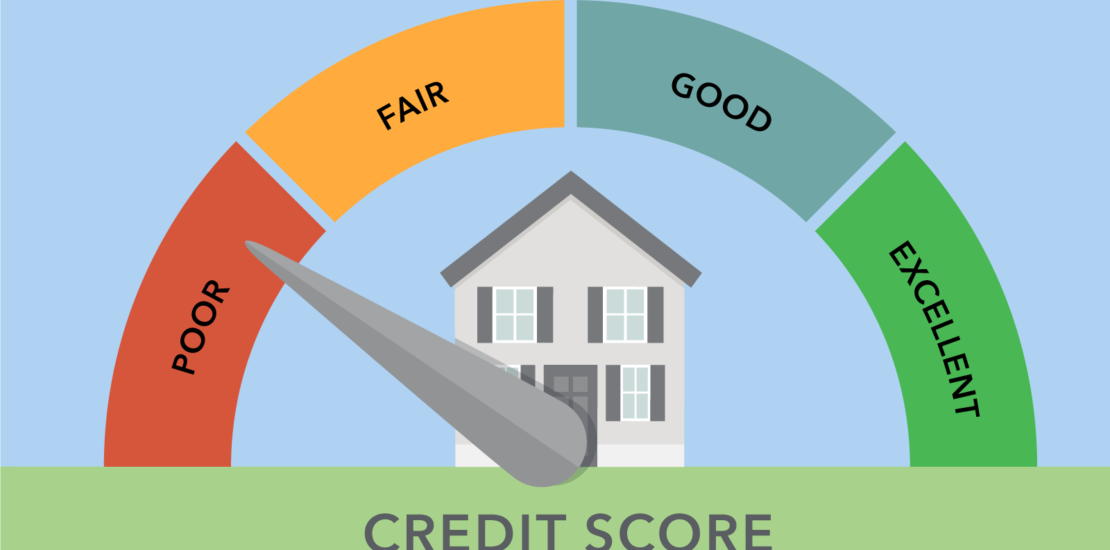A good credit score to buy a house is typically around 620 or higher. This score indicates a higher likelihood of loan approval and better interest rates for potential homebuyers.
Purchasing a house is a significant milestone in many people’s lives, but it often requires obtaining a mortgage loan from a lender. Lenders assess the risk of lending money based on borrowers’ credit scores, among other factors. A good credit score demonstrates responsible credit management and financial stability, making prospective homebuyers more attractive to lenders.
With a higher credit score, individuals can enjoy more favorable terms and conditions, such as lower interest rates and down payment requirements. Therefore, understanding the importance of a good credit score when purchasing a house is essential for aspiring homeowners.
Importance Of Credit Score
A good credit score is crucial when purchasing a house as it affects your loan eligibility and interest rates. Lenders generally consider a credit score of 620 or higher to be good, ensuring favorable borrowing terms and increased chances of approval.
A good credit score is crucial when it comes to buying a house. It is an important factor that lenders consider, as it directly impacts your ability to secure a mortgage with favorable terms and conditions. Your credit score reflects your financial responsibility and indicates the level of risk you pose as a borrower, making it a key consideration for lenders.
Lenders Considerations
Lenders carefully evaluate credit scores to assess the likelihood of borrowers defaulting on their mortgage payments. They use credit score as a reliable indicator of an individual’s financial stability and their history of managing credit obligations. Generally, lenders prefer borrowers with higher credit scores, as it signifies a lower risk of default and a higher probability of timely mortgage payments.
Impact On Interest Rates
Your credit score can significantly impact the interest rates you are offered on your mortgage. Borrowers with a higher credit score are usually eligible for lower interest rates, which in turn can result in substantial savings over the life of a loan. On the other hand, individuals with lower credit scores may be subject to higher interest rates, increasing the overall cost of homeownership.
Access To Financing
A good credit score can provide you with greater access to financing options when buying a house. With a higher credit score, you are more likely to be approved for a mortgage, even in a competitive market. It also opens up opportunities to secure larger loan amounts and favorable terms, allowing you to afford a dream home that meets your needs and preferences.
In contrast, a poor credit score may limit your options and make it difficult to obtain financing. Some lenders may require a higher down payment or impose stricter requirements for borrowers with lower credit scores, making it more challenging to purchase a home.

Credit Score Ranges
A good credit score is essential when buying a house. Understanding credit score ranges can help determine if your score is good enough to secure a home loan. Maintaining a good credit score will increase your chances of approval for a mortgage.
Poor Credit Score
A poor credit score can greatly impact your ability to buy a house. Lenders use credit scores to assess a borrower’s creditworthiness and determine the terms and interest rates for a mortgage. A poor credit score is typically categorized as below 580, indicating a history of missed payments, collection accounts, or loan defaults. With a poor credit score, it can be difficult to qualify for a home loan, and if approved, you may face higher interest rates and less favorable loan terms, making homeownership a challenging goal.
Fair Credit Score
A fair credit score is a step up from a poor credit score but still requires improvement to secure a favorable mortgage. Generally, a fair credit score falls within the range of 580-669. While having a fair credit score may increase your chances of qualifying for a home loan, you might still face higher interest rates and stricter lending requirements. It’s important to note that even with a fair credit score, you may need to work on strengthening your credit profile to improve your chances of obtaining a mortgage with more favorable terms.
Good Credit Score
A good credit score significantly enhances your ability to buy a house and obtain favorable loan terms. Typically falling between 670-739, a good credit score demonstrates responsible financial behavior and a history of timely payments. Lenders consider a good credit score as a reliable indicator that you are likely to repay your mortgage on time. With a good credit score, you can expect lower interest rates, more loan options, and better mortgage terms, ultimately saving you money over the life of your loan.
Excellent Credit Score
An excellent credit score puts you in an advantageous position when buying a house. Falling within the range of 740-850, an excellent credit score demonstrates impeccable financial responsibility. With an excellent credit score, lenders view you as a low-risk borrower, granting you access to the best loan options, lowest interest rates, and most favorable terms available. An excellent credit score not only makes homeownership more accessible but also provides potential savings over the long term, allowing you to enjoy the benefits of your home while minimizing your mortgage costs.
Qualifying For A Mortgage
Qualifying for a mortgage to buy a house requires meeting certain criteria set by lenders. One of the most important factors is having a good credit score. Lenders use your credit score as an indication of your creditworthiness and ability to repay the loan. In this section, we will explore the minimum credit score requirements, the preferred credit score range, and other factors lenders consider when you apply for a mortgage.
Minimum Credit Score Requirements
When it comes to buying a house, different mortgage programs have different credit score requirements. The most commonly used program, conventional financing, typically requires a minimum credit score of 620. However, some lenders may require a higher score, often around 680, to qualify for their best interest rates and terms.
If you’re unable to meet the minimum credit score requirement for conventional financing, government-backed loan programs like FHA (Federal Housing Administration) and VA (Department of Veterans Affairs) loans might be an option. The FHA loan program usually allows borrowers with a credit score as low as 580 to qualify, while VA loans may have more flexible credit score requirements.
Preferred Credit Score Range
While meeting the minimum credit score requirement is essential, having a higher credit score can improve your chances of getting a favorable mortgage. Lenders often consider a credit score of 740 or above as excellent, and borrowers within this range are likely to qualify for the best interest rates and terms available.
Even if your credit score falls slightly below 740, you can still secure a mortgage. For instance, a credit score between 680 and 739 is generally deemed good, and you may still be offered competitive interest rates. However, if your score is below 680, lenders may view you as a more significant risk, and you might face higher interest rates or stricter loan requirements.
Other Factors Considered
Aside from your credit score, lenders consider other factors when evaluating your mortgage application. These include your debt-to-income ratio, employment history, income stability, and the size of your down payment. While a good credit score is crucial, these additional factors provide lenders with a holistic view of your financial situation.
Remember, meeting the credit score requirements alone does not guarantee mortgage approval. It’s essential to review and improve other aspects of your financial profile to maximize your chances of qualifying for a mortgage and securing favorable terms.
Improving Your Credit Score
Looking to buy a house? Your credit score plays a crucial role. A good credit score is essential to secure a favorable mortgage, increasing your chances of homeownership. Improve your credit score to achieve your goal of buying a house.
Check And Monitor Your Credit Report
One of the first steps in improving your credit score is to check and monitor your credit report regularly. Your credit report contains important information about your credit history, including any missed payments, late payments, or accounts in collections. By reviewing your credit report, you can identify any errors or inaccuracies that may be negatively affecting your credit score.
In order to check your credit report, you can request a free copy once a year from each of the three major credit bureaus: Equifax, Experian, and TransUnion. You can also sign up for credit monitoring services, which provide regular updates and alerts about changes to your credit report. Monitoring your credit report allows you to stay informed and take action if you notice any suspicious activity.
Pay Bills On Time
One of the most important factors in determining your credit score is your payment history. Making timely payments on all of your bills, including credit cards, loans, and utilities, demonstrates to lenders that you are a responsible borrower. Late or missed payments can have a significant negative impact on your credit score.
To ensure that you pay your bills on time, consider setting up automatic payments or reminders. This can help you avoid forgetting to make a payment and can save you from potential late fees or penalties. By consistently paying your bills on time, you can show lenders that you are reliable and increase your chances of obtaining a good credit score.
Reduce Credit Utilization
Your credit utilization refers to the amount of credit you are currently using compared to your total available credit. High credit utilization can indicate to lenders that you are relying too heavily on credit and may be at risk of overextending yourself financially. Aim to keep your credit utilization below 30% to maintain a good credit score.
One way to reduce your credit utilization is to pay down your credit card balances. Focus on paying off high-interest debt first and consider consolidating your balances onto a single card or getting a personal loan to pay off your credit card debt. This can help lower your credit utilization ratio and improve your credit score over time.
Manage Debt Responsibly
In addition to reducing your credit utilization, it’s important to manage your overall debt responsibly. This means avoiding taking on too much debt and being mindful of your borrowing habits. Lenders consider factors such as your debt-to-income ratio when assessing your creditworthiness.
Start by creating a budget and sticking to it. This will help you prioritize your expenses and avoid unnecessary debt. If you do need to borrow money, make sure to do so responsibly, and only take on debt that you can comfortably repay. By managing your debt responsibly, you can maintain a good credit score and improve your chances of qualifying for a mortgage to buy your dream home.
Impact Of Credit Score On Mortgage Payments
A good credit score is crucial when it comes to buying a house. Not only does your credit score determine whether you qualify for a mortgage, but it also impacts the terms and conditions of your loan. One major aspect affected by your credit score is the amount you’ll pay for your mortgage every month. Let’s take a closer look at how your credit score can impact your mortgage payments:
Lower Interest Rates
Having a good credit score means you’re less of a risk for lenders. As a result, you’ll enjoy lower interest rates on your mortgage. This can save you thousands of dollars over the life of your loan. Lower interest rates translate to lower monthly mortgage payments, making it easier for you to manage your finances without breaking the bank. So make sure to maintain a good credit score to leverage the benefit of lower interest rates.
Lower Monthly Mortgage Payments
A lower interest rate isn’t the only advantage of having a good credit score. It also directly affects the amount you pay each month towards your mortgage. With a low credit score, you may end up with higher monthly mortgage payments due to increased interest rates. On the other hand, a higher credit score means lower monthly mortgage payments. This can free up your budget for other expenses or allow you to save more for the future.
More Options For Loans
A good credit score opens up a wide range of loan options for you. Lenders are more likely to offer you favorable loan terms and conditions, such as lower down payments or flexible repayment plans. With access to more loan options, you can choose a mortgage that best suits your financial situation and goals. This flexibility can contribute to lower monthly payments, making your dream of owning a home more achievable.
Shorter Loan Terms
Another advantage of having a good credit score is the opportunity to secure shorter loan terms. Lenders are more willing to offer you shorter repayment periods with low credit risks. A shorter loan term means you’ll pay off your mortgage faster, saving you money on interest payments in the long run. Additionally, shorter loan terms can result in higher monthly payments. However, the overall interest expense will be lower, allowing you to own your home outright sooner.
It’s clear that your credit score has a significant impact on your mortgage payments. From lower interest rates and monthly payments to more loan options and shorter loan terms, maintaining a good credit score is key to enjoying the financial benefits of homeownership.

Credit: newfloridamortgage.com

Credit: www.youtube.com
FAQ Of What Is A Good Credit Score To Buy A House
What Is A Good Credit Score To Buy A House?
To qualify for a mortgage, a good credit score is usually at least 620. However, a higher credit score can result in better interest rates and loan terms. Lenders also consider other factors like income, employment history, and debt-to-income ratio.
It’s important to have a strong credit profile before applying for a home loan.
How Can I Improve My Credit Score To Buy A House?
Improving your credit score to buy a house involves paying bills on time, reducing credit card balances, and avoiding opening new credit accounts. It’s also crucial to review your credit report for errors and dispute any inaccuracies. Additionally, limiting credit inquiries and maintaining a consistent payment history will help improve your creditworthiness.
Can I Buy A House With Bad Credit?
While it’s more challenging to buy a house with bad credit, it’s not impossible. There are options available such as FHA loans that have more flexible credit requirements. However, expect higher interest rates and stricter terms. It’s advisable to work on improving your credit score before applying for a mortgage to increase your chances of approval.
Conclusion
Having a good credit score is crucial when it comes to buying a house. Lenders use this score to determine your creditworthiness and the terms of your mortgage. A higher credit score generally means a lower interest rate and more favorable loan options.
By understanding what constitutes a good credit score and taking steps to improve it, you’ll be better positioned to achieve your dream of owning a home. Trust the process, be patient, and watch your credit score soar.
